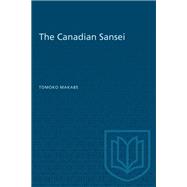With 66,000 members the Japanese-Canadian community is one of the smallest ethnic communities in Canada. Originally concentrated on the West Coast, their population was dispersed following the expulsion and internment of Japanese Canadians during the Second World War. In 1988 the redress of injustices to citizens interned during the war marked the end of a long fight that had united Japanese Canadians. The community has sensed a weakening of ties ever since.
The Nisei, or second generation of Japanese Canadians who lived through the war, suffered massive discrimination. Scattered across the nation, their children, the Sansei or third generation, have little contact with other Japanese Canadians and have been fully integrated into mainstream society. Tomoko Makabe discovered in her interviews with thirty-six men and twenty-eight women that, in general, the Sansei don't speak Japanese; they marry outside of the Japanese community; and tend to be indifferent to their being Japanese Canadian. Many are upwardly mobile: they live in middle-class neighbourhoods, are well educated, and work as professionals. It's possible to speculate that the community will vanish with the fourth generation. But Makabe has some reservations. Ethnic identity can be sustained in more symbolic ways. With support and interest from the community at large, aspects of the structures, institutions, and identities of an ethnic group can become an integral part of the dominant culture.
The Canadian Sansei is much more than an account of third-generation Japanese Canadians. Makabe's explorations reflect on aspects of history, culture, and identity in general as they relate to ethnic minorities in Canada and throughout the world.








